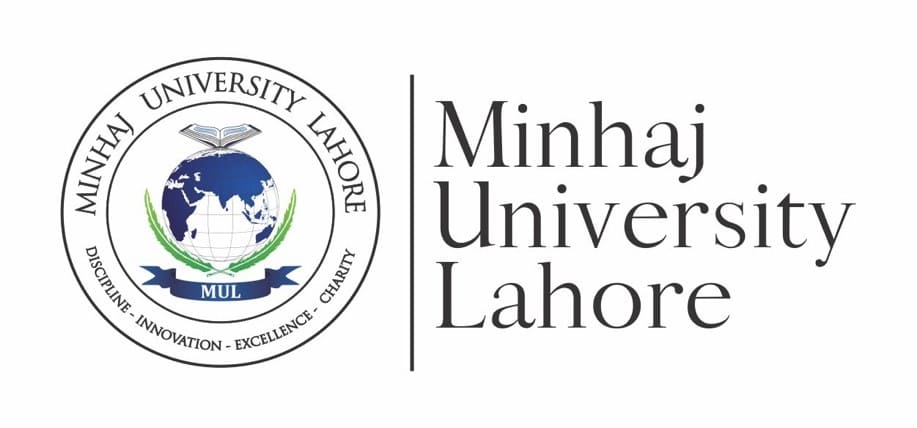Do Financial Indicators Affect the Performance of the Banking Ecosystem of Bahrain? A Study of Covid-19 Unprecedented
DOI:
https://doi.org/10.58932/MULD0004Keywords:
Banking system, Islamic banking, COVID-19, Financial performance, BahrainAbstract
The main objective of this study is to address the growth of the banking system in Bahrain and analyze the impact of Covid-19 on its financial performance due to the global pandemic effect. The sample has been taken from the banking sectors of Bahrain, which include three clusters: Islamic banking, conventional banking, and entire banks. Data were collected from the Central Bank of Bahrain (CBB), with quarterly data extracted from 2019-2020. This paper measures the impact of pre- and post-Covid-19 financial performance of Bahraini banks to determine the factors affecting the financial indicators that influence the banking sectors of Bahraini banks. The outcomes of the t-statistic failed to reject the null hypothesis, indicating no significant difference between the pre- and post-financial performance of the complete banking sectors of Bahrain. Furthermore, the study diagnoses the factors analysis, including capital adequacy, asset quality, profitability, and liquidity of the banking system of Bahrain. Islamic banking maintained a strong financial position in the pre- and post-Covid-19 periods, along with capital adequacy, asset quality, and profitability. It was observed that pre-Covid-19 conventional banks performed below par in terms of capital adequacy, asset quality, and liquidity, but post-Covid-19, the profitability ratio improved. The entire banking sector, before Covid-19, worked under pressure to generate profit, but after the coronavirus crisis, it recorded profits due to timely actions taken by the Government of Bahrain to reduce the adverse impact of Covid-19. This is a time of survival and growth for the banking industry during uncertainty, aiming to facilitate knowledge-driven insights for financial success.
References
Ali , M., Rashid , H. A., Ali , M. H., Usman, M., & Sohail , A. (2021). Assessment of Customers E-loyalty in digital banking During Covid-19: An application of 8C model. International Journal of Disaster Recovery and Business Continuity, 12(1), 1054-1062.
Abdulla, Y. (2021). The Banking Sector During COVID-19: The Case of Bahrain Islamic Bank. Bahrain: IGI Global.
Afandi, M. A. (2021). Financing Supply of Islamic Banking During COVID-19 Outbreak in Indonesia. Journal of Islamic Economic and Business Research, 1(1), 114-124,.
Bahrain.bh. (2021, May 13). Retrieved July 14, 2021, from Banking and Finance: https://www.bahrain.bh/wps/portal/!ut/p/a1/pZJfT8IwFMW_CjzscfSu--_bJIgSQAOibC-kG-2obu3YCui3t0BMNBHB2Le2v3N7zr1FCZqjRJAtz4niUpBiv0-8xe09eBYO8CCwZzZE9153EvbA6oOrgfgrALbd2wP-g_8UYi-Ay_SAR13rztH60QggCq4nw8ebLkDfPqd_RglKMqEqtUIxzeW2krUixYIKA9JNwwVtGgM2DWWbosUF
Barbara G. Tabachnick and Linda S. Fidell (2001). Using Multivariate Statistics, Fourth Edition. Needham Heights, MA: Allyn & Bacon. ISBN 0-321-05677-9. Hardcover.
Central Bank of Bahrain. (2021, june 14). Retrieved July 2021, 2021, from Islamic Finance: https://www.cbb.gov.bh/banking/
Corporate Finance Institute. (2021, May 25). Retrieved July 13, 2021, from Overview of Banks in Bahrain: https://corporatefinanceinstitute.com/resources/careers/companies/top-banks-bahrain/
Dicuonzo, G., Donofrio, F., Fusco, A., & Dell’Atti, V. (2021). Blockchain Technology: Opportunities and Challenges for Small and Large Banks During COVID-19. International Journal of Innovation and Technology Management, 18(4), 78-98.
EDB Bahrain. (2021, June 02). Retrieved July 11, 2021, from Financial Services Industry in Bahrain Analysis for 2021: https://www.bahrainedb.com/bahrain-pulse/2021-financial-sector-outlook/
Field, A. (2005) Reliability analysis. In: Field, A., Ed., Discovering Statistics Using SPSS. 2nd Edition, Sage, London, Chapter 15.
Fitch Solutions. (2021, June 13). Retrieved July 14, 2021, from Bahrain Banking & Financial Services Report: https://store.fitchsolutions.com/all-products/bahrain-banking-financial-services-report
Global Finance Magazine. (2021, April 08). Retrieved from Bahrain’s Bet On Fintech: https://www.gfmag.com/magazine/april-2021/bahrains-bet-fintech
Goodell, J. W. (2020, July). COVID-19 and finance: Agendas for future research. Finance Research Letters, 35.
Hair, J., Black, W., Babin, B., Anderson, R. and Tatham, R. (2006) Multivariate Data Analysis. 6th Edition, Pearson Prentice Hall, Upper Saddle River.
Hair, J., Anderson, R., Tatham, R. and Black, W. (1998) Multivariate data analysis. 5th Edition, Prentice Hall, New Jersey.
Hassan, R., & Zulfahmi. (2021). Participatory Banking (PB) Taking Measures Against Covid-19 in Turkey Issues and Proposed Strategies. Turkish Journal of Islamic Economics(8 (Special Issue)), 445-467.
Irfan, M. (2021). Do Shariah Indices converge? Evidence from Gulf Cooperation Council countries. International Journal of Business Excellence, 23(2), 251 - 269. doi:DOI: 10.1504/IJBEX.2021.113448
Irfan, M., & Tanwar, S. (2018). Economic and Sustainable Development of Entrepreneurial Practices : A Philanthropic Approach of Islamic Finance in India. Indian Journal of Economics and Research, 7(1), 12-21. doi:DOI: 10.17010/aijer/2018/v7i1/122139
Malek, M. A. (2020). Impact of Covid-19 on Islamic Banking in The Middle East. Bahrain: Post Pandemic Economy – Challenges & Solutions.
Masruki, R., Khairulannuar, H., & Dhar, B. K. (2020). Shariah Accountability Practice of Malaysian Foreign-Owned Islamic Banks and Bahrain Islamic Banks. International Journal of Advanced Science and Technology, 29(04), 5768 - 5782.
Nobanee, H., & Ahmed, F. A. (2020). Applying the CAMELS Performance Evaluation Approach for National Bank of Bahrain. UAE: Abu Dhabi University.
Reise, S. P., Waller, N. G., & Comrey, A. L. (2000). Factor analysis and scale revision. Psychological Assessment, 12(3), 287–297. HYPERLINK "https://psycnet.apa.org/doi/10.1037/1040-3590.12.3.287" t "_blank" https://doi.org/10.1037/1040-3590.12.3.287
S&P Global. (2021, May 03). https://www.spglobal.com/. Retrieved July 11, 2021, from Islamic Finance 2021-2022: Toward Sustainable: https://www.spglobal.com/ratings/en/research/articles/210503-islamic-finance-2021-2022-toward-sustainable-growth-11933944#:~:text=S%26P%20Global%20Ratings%20believes%20the,exceeding%20maturities%20explain%20this%20performance.
Startup Genome. (2020, Nov 26). Retrieved from Riyadh and Bahrain among world’s top fintech ecosystems to watch, according to new report: https://www.finextra.com/pressarticle/85196/riyadh-and-bahrain-among-worlds-top-fintech-ecosystems-to-watch-according-to-new-report
Trade Arabia. (2021, June 10). Retrieved July 13, 2021, from Bahrain’s Islamic banking sector set to grow: Fitch: http://www.tradearabia.com/news/BANK_383370.html
Zawya. (2021, May 03). Retrieved July 11, 2021, from Global Islamic finance set to grow 12% driven by sukuk, takaful: https://www.zawya.com/mena/en/business/story/Global_Islamic_finance_set_to_grow_12_driven_by_sukuk_takaful-ZAWYA20210503091948/
Downloads
Published
How to Cite
Issue
Section
License
Copyright (c) 2021 MUHAMMAD IRFAN

This work is licensed under a Creative Commons Attribution-NonCommercial 4.0 International License.









